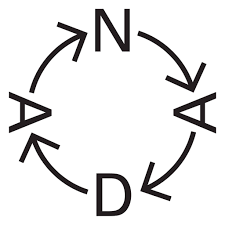In Korea, when someone dies and is prepared for burial, family members dress the departed in a garment called a suui. Made of hemp, it is part of a tradition that artist Jee Park knew she wanted to contemplate and explore in her art.
The practice is a key part of Park’s Close to Home exhibit, which opens Saturday, July 29, at Dimensions Variable. The show discusses the suui custom with the violent attacks against Asian Americans in the United States over the last several years. Using fabric, wood, paint, and other media, Park’s work asks what is left when a life is taken, especially when a deranged gunman or hate-filled attacker snatches it away.
“That could be my aunt, a friend, or me.”
Her work particularly references the 2021 shooting of eight people, six Asian-American women, at Atlanta-area spas. “That incident shook me to the core,” says Park.
It wasn’t the only outrage that affected her. Chinese, Korean, Japanese, Filipino, and others of Asian background or descent were targeted during the pandemic and beyond. They include the 2022 murder of 35-year-old Christina Yuna Lee, who was followed and stabbed to death in her home on Chrystie Street in New York’s Chinatown. “Chrystie Street” is the title of one of Park’s Dimensions Variable installations.
Park grew up in Seoul and attended an art-focused high school, then attended the School of Visual Arts in New York City. The relocation wasn’t easy, especially in the beginning. “I think I understood 50 percent of what was going on in the classroom.” She began exploring beyond the painting medium, eventually moving into fiber and a melding of surface and frame. “At the same time, I was more free — it’s very structured in Korea.”
She later earned her master’s degree at NYU. Park moved to South Florida with her partner and fellow artist Clara Varas in 2000. During a visit to her Allapattah studio, where she was preparing work for the upcoming show, Park explains how she began exploring ideas around grief, remembrance, and anxiety after her father’s death five years ago. “Those feelings intensified during the pandemic,” she says, and have grown more insistent because of the gun violence epidemic that has roiled the United States over the last few years.
“Chrystie Street” combines a variety of fabrics — muslin, gingham, and pieces of clothing — attached to a wooden frame. There are fragments of lingerie, the arm of a T-shirt, and a handcrafted sock similar to that used in the suui dressing. In the front of her studio, Park has a pair of Singer sewing machines where she transforms with fabric the memory of lives, now flattened, stretched, and deconstructed.

